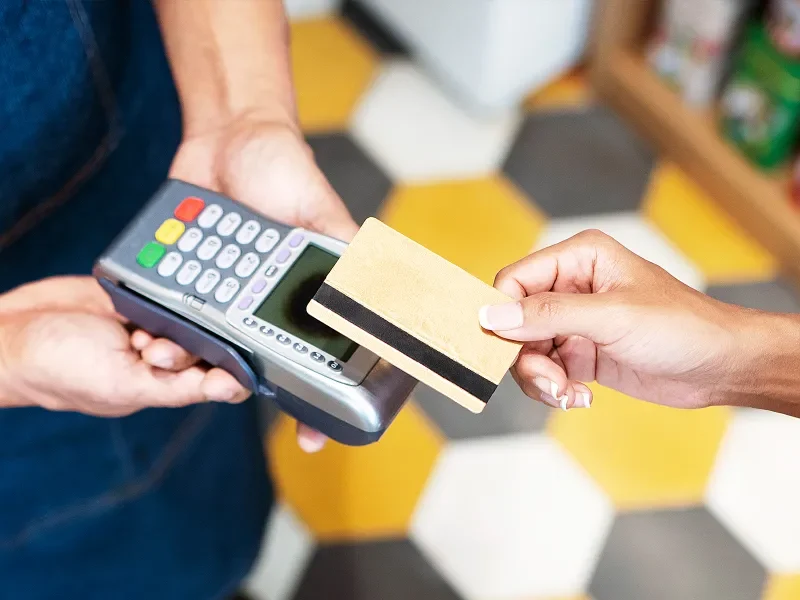“Don’t go to the basement.” That’s all my boss said before hanging up. At first, I dismissed it as another odd demand from a man full of it. But when I stepped into his house and his daughter mentioned what — or who — was downstairs, I couldn’t stop myself from looking.
If you had told me six months ago that my career in architecture would involve more latte runs than floor plans, I’d have laughed in your face. I was top of my class, after all. But then I started working for Mr. Miles. He’s a genius in his field, sure, but being his assistant is a whole different story.
Take last Tuesday, for example. The day started with him tossing his keys onto my desk and barking, “Kara, I need you to take the Porsche to the mechanic again. And don’t let them swindle you this time.”
I hadn’t even sat down yet.
By lunchtime, I’d dealt with three phone calls from his ex-wife and delivered a pair of cufflinks to a dry cleaner that he insisted was “the only one who doesn’t ruin silk.” Oh yeah, I also attended a meeting where I had to present his designs while pretending to be his “junior partner.”
I was halfway through presenting Mr. Miles’ latest luxury condo project to a very impatient client when my phone buzzed. Usually, I’d let it go to voicemail, but when the screen lit up with Boss, I knew better.
“Kara,” he said the moment I picked up. His voice was strained. “I need you to drop everything and go to Chloe’s school. She has a stomach ache and needs to come home. Take her to my place, and stay with her until I get back.”
“Wait, what? Mr. Miles, I’m in the middle of —”
“Now, Kara,” he snapped. “Straight home. Don’t go to the basement. It’s, uh, under repair. Got it?”
I wanted to argue. I really did. But the tension in his voice, made me pause. “Fine,” I sighed. “I’m on my way.”
When I got to the school, Chloe was curled up in the nurse’s office, looking pale and miserable. “Hey there, kiddo,” I said softly. “Let’s get you home.”
She barely nodded, clutching her stomach as I helped her into the car. On the drive to Mr. Miles’ house, she whimpered softly, and I tried to distract her.
“So, favorite ice cream flavor? I’m guessing chocolate chip cookie dough.”
“Chocolate’s gross,” she mumbled.
“Okay, strike one for Kara.” I smiled, hoping to cheer her up. But then she said something that made no sense.
“I need Rodger,” she whispered, tears welling up.
“Rodger?” I asked. “Who’s Rodger, hon?”
“My little brother,” she said, her voice breaking. “But this morning, Dad left him in the basement.”
My hands gripped the steering wheel tighter as her words sank in. Little brother? The basement?
By the time we got to the house, my mind was racing. I set Chloe up on the couch with a blanket and some water, then crouched down in front of her.
“Chloe, what do you mean Rodger’s in the basement? Is he okay?”
She just nodded solemnly and said, “Dad said not to let him out.”
Against every warning bell screaming in my head, I marched to the basement door.
As I stepped into the basement, I braced myself for something out of a horror movie. Instead, I was hit with the overwhelming scent of lavender, the soft glow of fairy lights, and a scene so tender that it left me speechless.
The space wasn’t dark or foreboding — it was magical. The walls were painted in soft pastels, and whimsical decorations hung from the ceiling. A tiny, ruffled tent sat in the corner, surrounded by plush toys and stacks of colorful books. Dolls lined the shelves, each one perfectly placed, as if waiting for someone to come play.
Before I could fully process what I was seeing, Chloe padded softly down the stairs behind me.
“Chloe,” I said gently, my voice trembling. “Where’s your brother? Where’s Rodger?”
She didn’t answer right away. Instead, she walked over to a shelf and picked up a framed photo. She held it out to me with both hands.
In the picture, it was her brother Rodger who looked about seven or eight, with the same bright eyes and mischievous smile.
“That’s Rodger,” Chloe said, her voice soft.
I crouched down to her level, my heart pounding. “Where is he now, sweetheart?”
She glanced up at me, then pointed toward the ceiling. “He’s up there,” she whispered.
“But we were just upstairs.” It took me a moment to understand. “Oh. You mean… he’s in heaven?”
Chloe nodded, her little face clouding over. “He got really sick with cancer last year. Daddy said he had to go where he wouldn’t hurt anymore.”
Tears stung my eyes as I looked back at the picture, my chest tightening. All this time, I’d thought my boss was hiding something dark, but instead, he was protecting something fragile: his daughter’s memory of her brother.
Chloe pulled me toward a small table in the corner, where a crayon drawing sat in a simple frame. It showed a boy and a girl holding hands beneath a rainbow. “Daddy made this room for me,” she said. “So I’d always have a place to think about Rodger.”
Chloe beamed at me, her small hands spreading out to show off the room like she was presenting a palace.
“My daddy made it for me,” she said proudly. “He built my princess room. Everything in here, he made it just for me. Well, we made it together, really.”
I knelt down, letting my fingers brush over the edges of a tiny tea set arranged perfectly on a miniature table. My chest ached as I tried to process the contrast between this heartfelt space and the demanding, cold man I knew at work.
“You helped him?” I asked softly.
She nodded, her curls bouncing. “I picked the colors. And the sparkly lights.” Her face fell slightly. “It’s our happy place, so I don’t feel so sad about Rodger.”
Tears spilled down my cheeks before I could stop them. Here was this little girl, holding onto her brother’s memory with so much love, while her father — the man who barked orders and treated everyone like pawns — had poured his grief into creating something beautiful for her.
The sound of the front door opening snapped me out of my thoughts. Heavy footsteps echoed through the house, and a familiar voice called out, “Chloe?”
She ran upstairs, and moments later, Mr. Miles appeared in the doorway. His eyes immediately narrowed when he saw me. “Kara,” he said tersely, “what are you doing down here? I told you not to come in here.”
I stood, wiping at my face, my words stumbling out. “I… Chloe mentioned Rodger, and I didn’t know… she said he was in the basement, and I —”
He sighed, pinching the bridge of his nose. “This is why I didn’t want anyone to see. It’s… hard for me.”
His voice cracked slightly, and for the first time, I saw the weight he carried, the grief he’d hidden behind his demanding exterior.
Standing in the warmth of Chloe’s “princess room,” surrounded by remnants of her father’s love and grief, I felt a rare surge of courage. “Mr. Miles,” I began hesitantly, “can I be honest with you?”
His sharp gaze shifted to mine, but it wasn’t angry — just weary. “Go ahead.”
“I’ve been thinking about quitting,” I said, my voice trembling despite my resolve. “I’m not doing real work here. Fetching coffee. Running errands. It’s not why I took this job. It’s… it’s meaningless.”
He didn’t snap at me. He didn’t scoff. Instead, to my utter surprise, he sank onto a small wooden chair by the tent and rested his elbows on his knees. For a moment, the mighty, unyielding Mr. Miles just looked… human.
“I’m sorry,” he said finally, his voice quiet. “I’ve been hard on you, haven’t I?”
I didn’t know what to say, so I stayed silent.
“You know,” he continued, rubbing the back of his neck, “this is how I was trained when I started. My mentor believed in breaking you down to build you back up. I thought that’s what it took to push someone to succeed.” He looked around the room, his eyes lingering on the photo of his family. “But now… I see it’s nonsense. Really, it is.”
The air between us hung heavy for a moment before he straightened up, pulling a folder from his briefcase.
“Let’s start over,” he said, his tone firmer but no less sincere. “Here’s an actual assignment: review these blueprints for tomorrow. I want your input on the design. Are you ready to actually work?”
My mouth fell open as I stared at him. Was this a test? A trap? But then I saw the faintest flicker of a smile tugging at the corner of his mouth, and I realized he was serious.
I nodded, unable to suppress a grin. “Finally,” I said, relief and excitement bubbling in my chest.
He gave a short laugh, then stood. “Good. And Kara?”
“Yes?”
He hesitated, glancing at Chloe’s drawing on the table. “Thanks for taking care of her. And for… sticking around.”
“Of course,” I said, smiling.
“Tomorrow,” he added, walking up the stairs, “don’t be late.”


